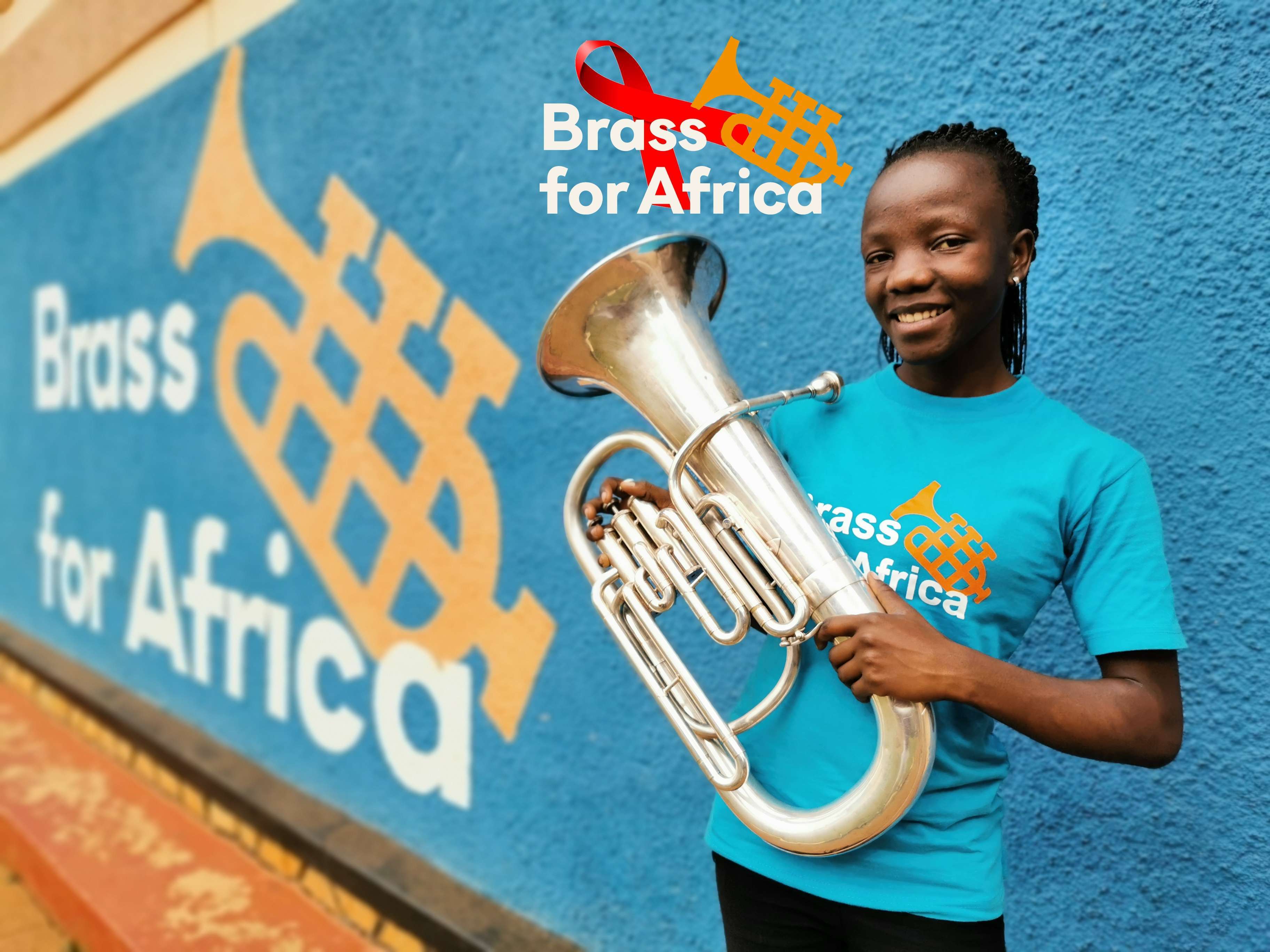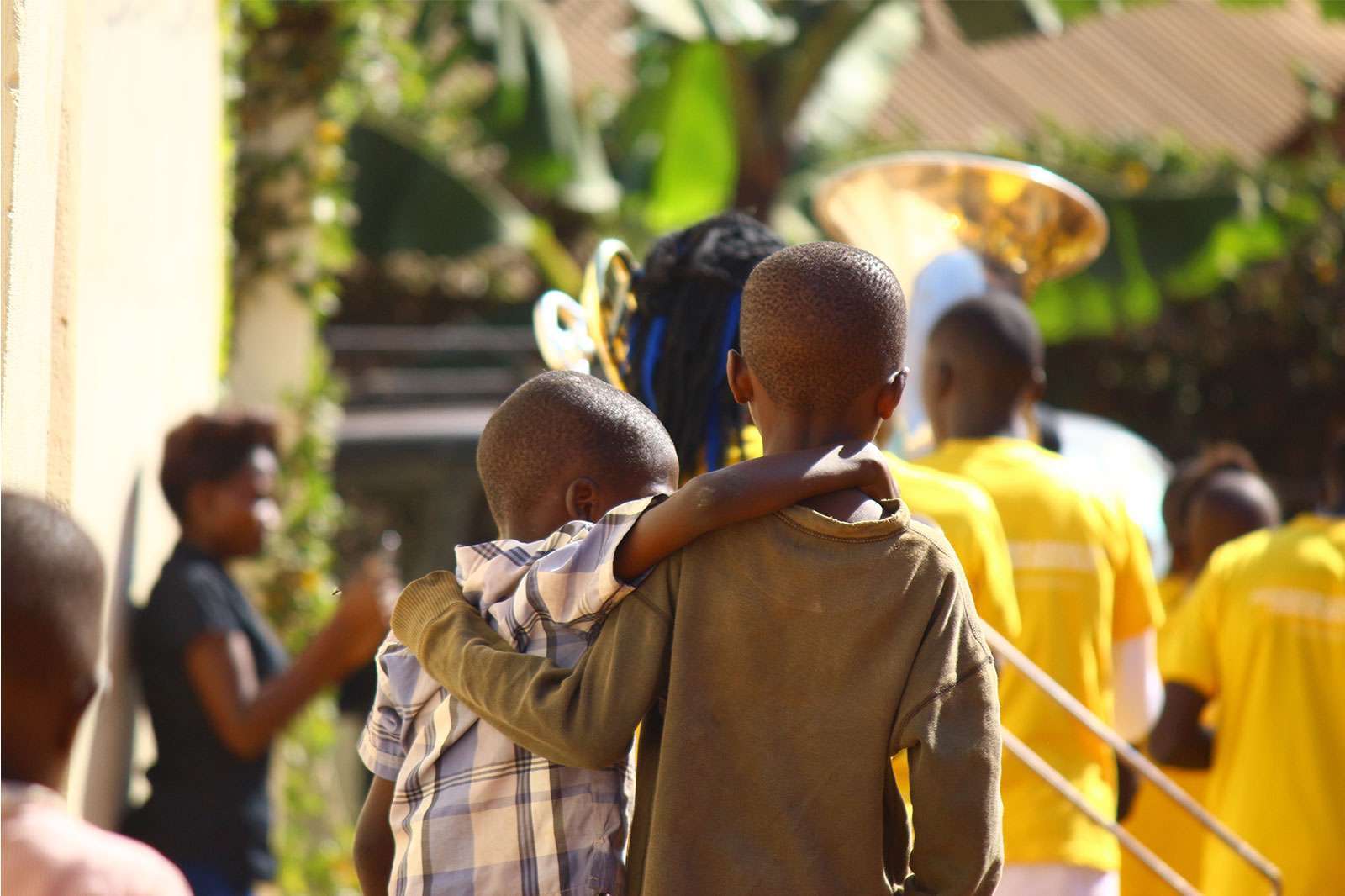Sunday 1st December 2019 marks Worlds Aids Day. There are currently 34 million HIV-positive people worldwide with 69% of this number living in Sub-Saharan Africa.
At Brass for Africa we are working to combat the spread of HIV/AIDS in two communities in Uganda. We have music and life-skills programmes with specific HIV training interventions in Kalangala, an isolated island community that has the highest incidence of HIV infection in the country, and another in Wangabu sub county where, like much of the country, there is stigma related complacency and lack of knowledge.
Brass for Africa holds twice weekly music and life-skills training session in these areas providing a safe, structured and fun forum to tackle issues associated with HIV. We work with partners such as the US President’s Emergency Plan For AIDS Relief and the Infectious Diseases Institute to hold monthly seminars to increase the comprehensive knowledge of HIV/AIDS, reduce the crippling stigma associated with HIV and reinforce the importance of regularly taking Anti-Retroviral Therapies.
“Our Monitoring and Evaluation Department create periodic reports through teacher observations, reviews, and data collection surveys. Our latest annual report on the intervention in Kalangala (2018) reflects a 20% increase in HIV/AIDS knowledge and a 40% reduction in stigma” – Loise Agassi, Head of Monitoring and Evaluation
Through the set up and hosting of weekly “clubs” where young people on our programmes come together to discuss what they have learned, Brass for Africa is creating and encouraging over 100 young Healthcare Ambassadors to become game changers in their own communities. This creates a way for the change message to be indigenous and not “foreign”, making it easier for the people to trust members of their own communities rather than imported trainers or educators.
Step-by-Step: How do we make an impact?
STEP 1
Identification of a community/people with unique needs and challenges like Kalangala that still struggles to fight the disease at 19% when the rest of the country is at 7.3% (kalangala.go.ug ) and Wangabu Subcounty with stigma related complacency and a lack of knowledge.
STEP 2
Baseline Surveys by M&E will help establish and expose the very clear gaps of information, facts and the root cause of their challenges, myths and beliefs sustaining stigma and cultural behaviors. These provide information to inform programming. We set-up bands and if clubs and begin to equip a small group with the facts and information.
STEP 3
The bands and clubs provide the very needed environment for discussing and developing solutions. Ambassadors are born of the participants who are gaining skills and developing the necessary attributes to empower them to cause change in their communities like sensitive communication, confidence and resilience.
STEP 4
By empowering their own young people, we create a way for the change message to be indigenous and not foreign, making it easier for the people to trust their own rather than imported trainers/educators. Ambassadors initiate local efforts and working with their own communities to adopt ways and methods of prevention and treatment.


